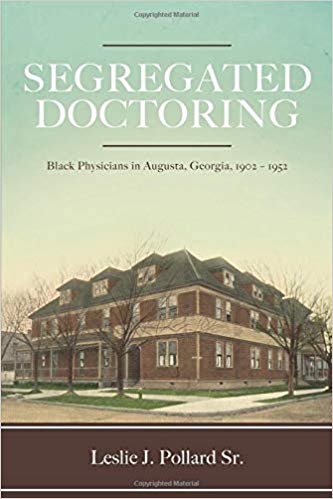Segregated Doctoring: Black Physicians in Augusta, Georgia, 1902–1952
Retired Paine College history professor examines the historical role of Augusta’s black physicians in the face of racial inequality in new book

African American physicians began arriving in post Reconstruction era Augusta, Georgia during the mid-1880s. Initially these black physicians were offered work at the city’s only African American public hospital, but as racial prejudices hardened, they were barred from practicing at public hospitals, thus limiting their access to continuing education, denying career advancement, and creating an environment of discrimination and exploitation. However, black physicians persevered and played a critical role in developing cultural change within the field of medicine through racial solidarity and institutional development.
In Segregated Doctoring, author Leslie J. Pollard, Sr. highlights the origins of the African American medical practice in Augusta within the confines of legalized segregation and racial tension in the South. Pollard says,
“I think the book serves as a corrective to the neglected story of black physicians in Augusta, and it is my hope that it becomes an important addition to scholarly literature that explores the city’s rich medical history.”
*
Note to readers: please click the share buttons below. Forward this article to your email lists. Crosspost on your blog site, internet forums. etc.
Leslie J. Pollard Sr. was the Callaway Professor of History at Paine College in Augusta, Georgia. His works include “Complaint to the Lord: Historical Perspectives on the African American Elderly” published by Susquehanna University Press in 1996 and Growing up Country, a fictional account of a rural black family during the Jim Crow period.

Segregated Doctoring by Leslie J. Pollard, Sr.
Genre: Non-fiction
ISBN: 978-1-64111-162-1
308 pages

